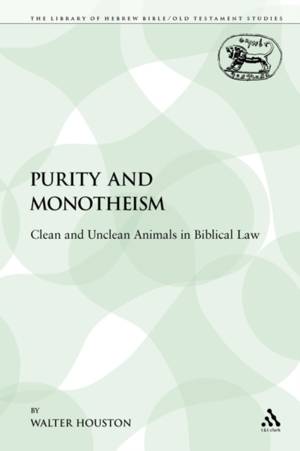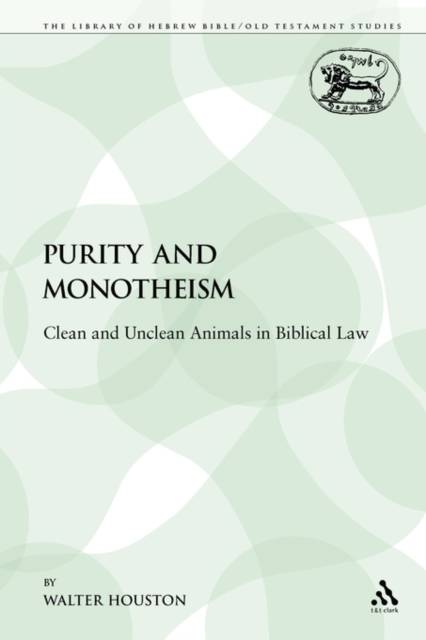
En raison d'une grêve chez bpost, votre commande pourrait être retardée. Vous avez besoin d’un livre rapidement ? Nos magasins vous accueillent à bras ouverts !
- Retrait gratuit dans votre magasin Club
- 7.000.000 titres dans notre catalogue
- Payer en toute sécurité
- Toujours un magasin près de chez vous
En raison de la grêve chez bpost, votre commande pourrait être retardée. Vous avez besoin d’un livre rapidement ? Nos magasins vous accueillent à bras ouverts !
- Retrait gratuit dans votre magasin Club
- 7.000.0000 titres dans notre catalogue
- Payer en toute sécurité
- Toujours un magasin près de chez vous
Description
The distinction between clean and unclean animals, probably originating in tensions between shepherds and farmers, is in the biblical laws of Leviticus 11 and Deuteronomy 14 transformed into an important theological principle. In this wide-ranging and elegantly written study, Houston argues that the avoidance of 'unclean' foods is a mark of the exclusive devotion of Israel to one god. In a concluding chapter, it is suggested that the abolition of the distinction in early Christianity corresponds to the universal horizon of the new faith.
Spécifications
Parties prenantes
- Auteur(s) :
- Editeur:
Contenu
- Nombre de pages :
- 314
- Langue:
- Anglais
- Collection :
- Tome:
- n° 140
Caractéristiques
- EAN:
- 9780567504364
- Date de parution :
- 01-11-09
- Format:
- Livre broché
- Format numérique:
- Trade paperback (VS)
- Dimensions :
- 156 mm x 234 mm
- Poids :
- 453 g

Les avis
Nous publions uniquement les avis qui respectent les conditions requises. Consultez nos conditions pour les avis.






